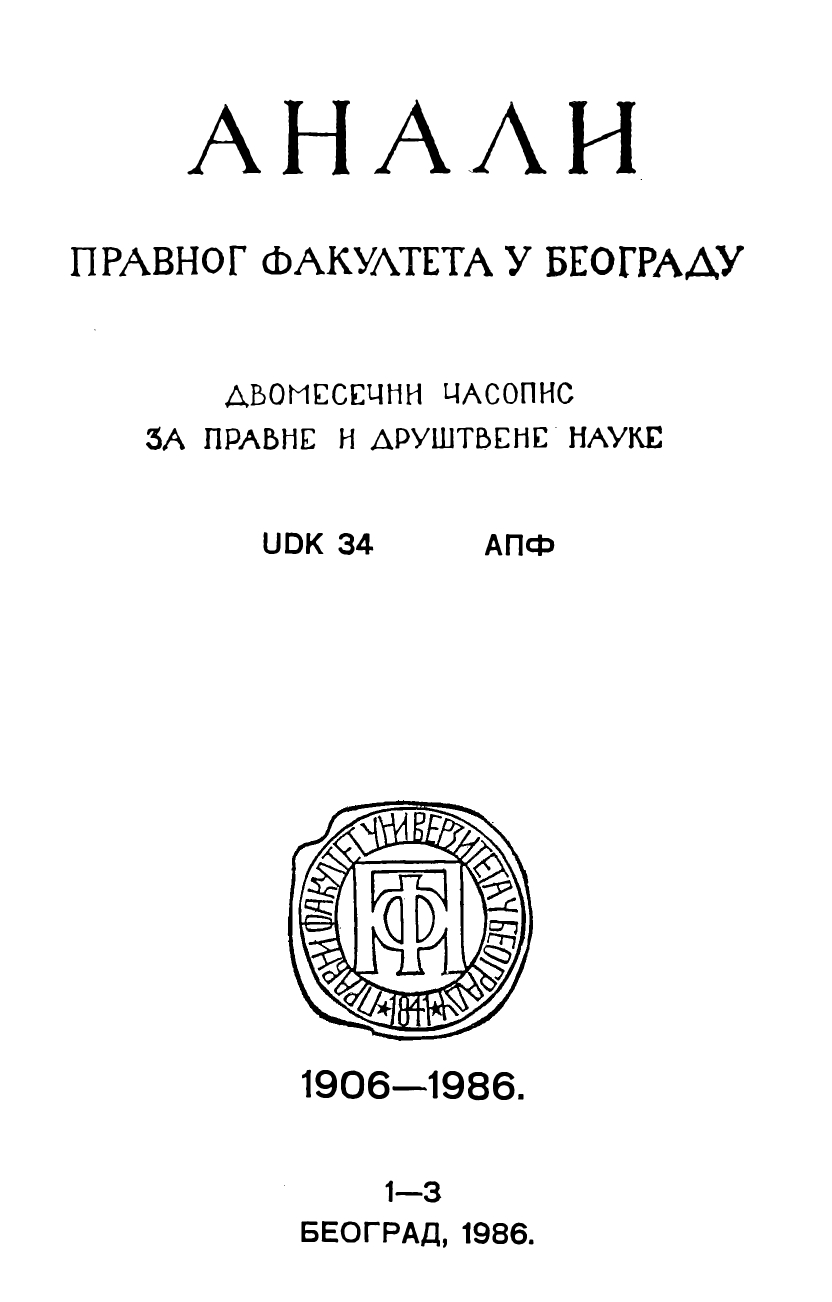ЦИЉЕВИ КРИМИНАЛНЕ ПОЛИТИКЕ
THE OBJECTIVES OF CRIMINAL POLICY
Author(s): Đorđe M. IgnjatovićSubject(s): Politics / Political Sciences, Politics, Law, Constitution, Jurisprudence, Criminal Law
Published by: Правни факултет Универзитета у Београду
Summary/Abstract: The criminal policy in both of its meanings, namely as a scientific discipline and as a practical public activity, is closely related to its objectives and values. The basic objective of criminal policy is finding and applying the most efficient means for fighting and preventing criminal activity. However, this goal should be realized in complete coordination with the other social values, which set specific limits to the efficient struggle against crimes. Viewed from that angle, criminal policy has to be a coherent, rational, carefully planned and all-encompassing and developed system of objectives and measures, which should be incorporated into the conception of development plans of society, namely into the specific social reality. Two essential objectives which should be taken into account in developing any system of criminal policy are the requests for adhering to the principles of equity, as well as to the protection of human rights. In relation to the request for equity, the author points at the importance of the impartial conception of that notion, meaning the observing a need for equal treatment of individuals and situations which are basically identical. Criminal policy which in practice applies unequal treatment by the prevention and repression agencies towards individuals of different social, national, reli gious and similar groups, can not be an efficient instrument of fighting the criminal activity. The present-day degree of development of social consciousness in the mayority of countries requires from the subjects of criminal-policy activities to take into consideration under all circumstances the need for protection of dignity and rights of man. This usually refers to persons accused for committing criminal acts, namely to the ones serving their term of sentence in prison. However, the criminal-policy mechanisms protect against violations or endangering the most significant values of every member of society; they protect individual freedoms and rights, including man’s position in society. On the other hand, the most significant problem related to the protection of human rights and to the measures of prevention in the sphere of crimes, is connected to the so-called pre-delict measures, namely to the question of a possibility of a preventive approach, i.e. ante delictum treatment against those persons who — although not already committing a criminal act — did point by means of their activity to a certain degree of danger to society. In relation to this problem, the author considers that some measures of a non-compulsory character may be applied to such persons, and they could refer to the areas of social security, health care, mental hygiene, and moral education. Hence, in order to eliminate the dangers of unlimited spreading of coercion in a sensitive and uncertain area, the measures which could be applied to such persons should be situated outside the sphere of criminal law and the repression by the state.
Journal: Анали Правног факултета у Београду
- Issue Year: 34/1986
- Issue No: 1-3
- Page Range: 64-71
- Page Count: 8
- Language: Serbian

